Martin Wolf is among the world's most perspicacious and wisest voices on geoeconomics and geopolitics. He's also been an intense student of President Trump's rise and re-rise to power. Martin's 2023 book, The Crisis of Democratic Capitalism, is a must read, explaining why democracy is in global decline and facism, yes, a strong word, is either already here or just around the corner.
Will America First mean America Last? Will expelling 11 million immigrants spell recession. Will tariffs trigger a return to very high inflation? Will the balance of power devolve to L'etat C'est Moi? And will our steadfast allies decide to realign with China, leaving America not so great anymore?
Listen/watch this riveting podcast to get Martin's full take on the political and economic earthquake that's shaking our world.
Martin's Bio
In 1971, Wolf joined the World Bank's young professionals programme, becoming a senior economist in 1974. By the start of the eighties, Wolf was deeply disillusioned with the Bank's policies undertaken under the direction of Robert McNamara: the Bank had been strongly pushing for increased capital flows to developing countries, which had resulted in many of them suffering debt crises by the early 1980s. Seeing the results of misjudged intervention by global authorities and also influenced from the early 1970s by various works critical of government intervention, such as Friedrich Hayek's The Road to Serfdom, Wolf shifted his views towards the right and the free market.
Wolf left the World Bank in 1981, to become Director of Studies at the Trade Policy Research Centre, in London. He joined the Financial Times in 1987, where he has been associate editor since 1990 and chief economics commentator since 1996. Up until the late 2000s, Wolf was an influential advocate of globalization and the free market.
In addition to his journalism and participation in various international forums, Wolf had also attempted to influence opinion with his books; he has stated that his 2004 book, Why Globalization Works, was intended to be a persuasive work rather than an academic study. By 2008, Wolf had become disillusioned with theories promoting what he came to see excessive reliance on the private sector. While remaining a pragmatist free of binding commitments to any one ideology, Wolf's views partially shifted away from free market thinking back to the Keynesian ideas he had been taught while young.
He became one of the more influential drivers of the 2008–2009 Keynesian resurgence, and in late 2008 and early 2009, he used his platform on the Financial Times to advocate a massive fiscal and monetary response to the financial crisis of 2007–2010. According to Julia Ioffe writing in 2009 for The New Republic, he was "arguably the most widely trusted pundit" of the crisis. Wolf is a supporter of a land value tax.
Between 2010 and 2011, Wolf served on the Independent Commission on Banking.
In 2012, Wolf stated in remarks for the Financial Times that public goods are building blocks of civilisation: security and safety, knowledge and science, a sustainable environment, trust, the Rechtsstaat, and economic and financial stability.
Wolf discussed the economic impact of the COVID-19 pandemic in an April 2020 editorial for the Financial Times titled "The world economy is now collapsing", where he called it the "biggest economic disaster since the Depression of the 1930s".
Here's the full link to Martin's Wiki page.
Economic Matters - The podcast is hosted by Laurence Kotlikoff, a Boston University Economist, a NY Times Best Selling Author, President of maxifi.com, and Author of Money Magic.
Stay Connected: Facebook, Twitter, LinkedIn

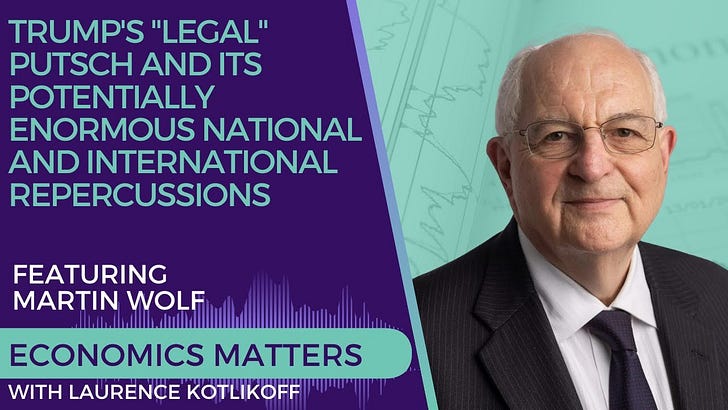
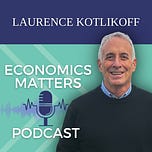


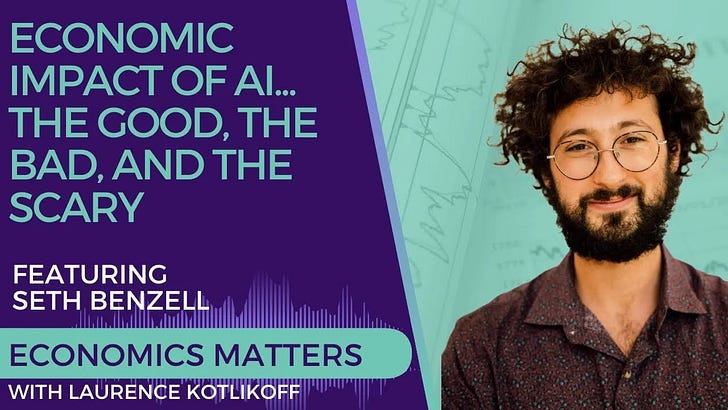
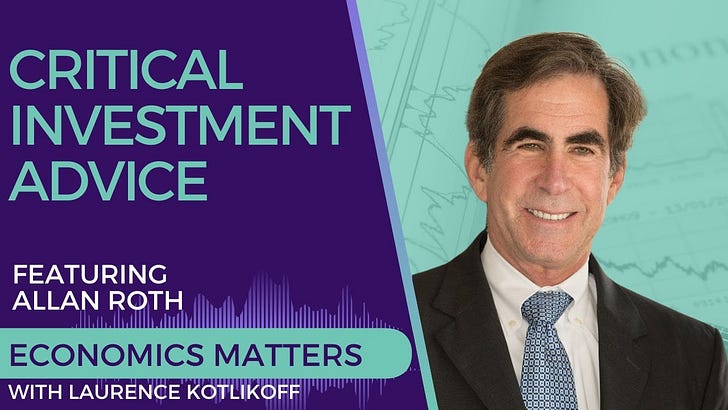
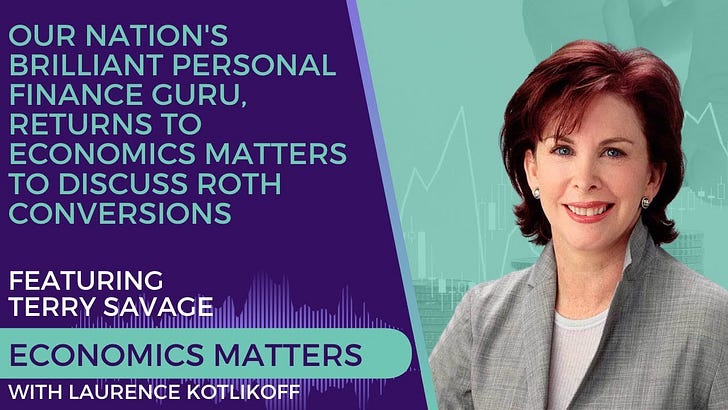
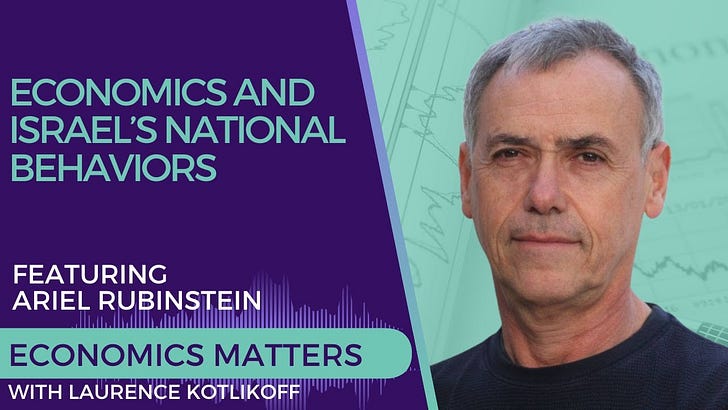
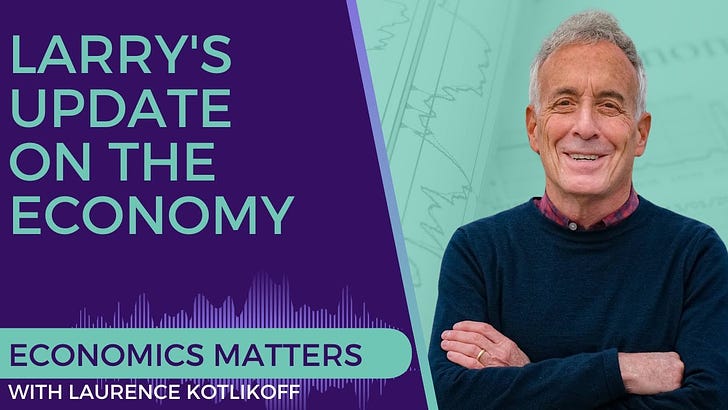
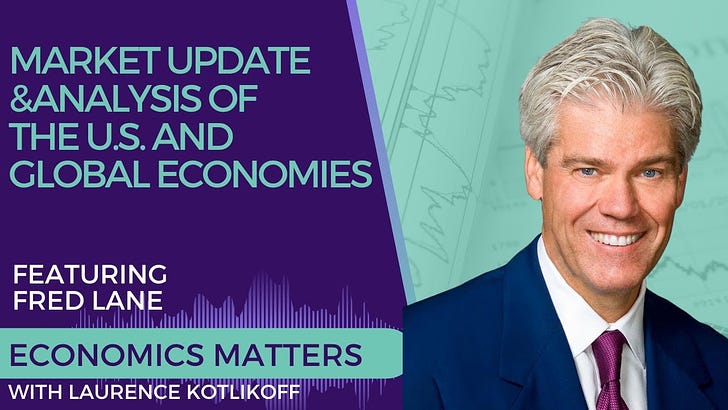
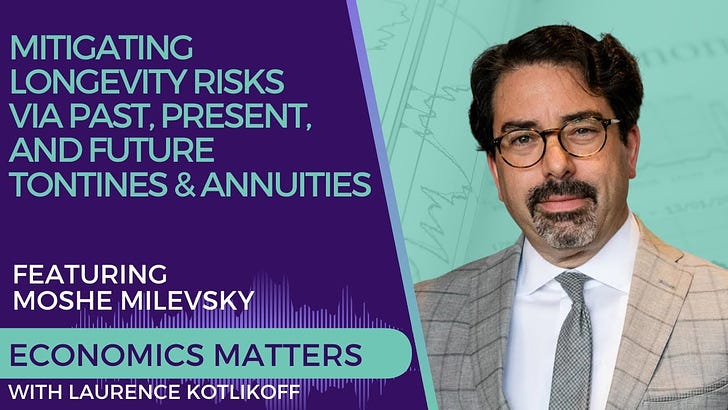
Share this post